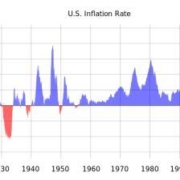Aristotle in Connecticut
by Eric Zencey
 As I tried to comprehend the tragedy in Newtown, Connecticut, my thoughts were with the victims and their families. The horror I feel is nothing compared to what they have been required to experience and absorb. Understanding what happened seems impossible — but attempt to understand it we must, if we are to reduce the occurrence of these devastating shooting tragedies in the future. As I wondered along with the rest of America how this could happen, my thoughts turned to ancient philosophy — specifically, to the teachings of Aristotle and what he said about causation.
As I tried to comprehend the tragedy in Newtown, Connecticut, my thoughts were with the victims and their families. The horror I feel is nothing compared to what they have been required to experience and absorb. Understanding what happened seems impossible — but attempt to understand it we must, if we are to reduce the occurrence of these devastating shooting tragedies in the future. As I wondered along with the rest of America how this could happen, my thoughts turned to ancient philosophy — specifically, to the teachings of Aristotle and what he said about causation.
Any act that has a cause, he said, actually has four different kinds of causes: material, efficient, final, formal.
The efficient cause of gun violence is a shooter who intends to kill. The material cause of gun violence is the gun. If you want to prevent school shootings, it makes sense to keep shooters and guns from coming together anywhere near a school. Focusing on these easy-to-see causes leads to calls for more thorough background checks before gun ownership, for other forms of gun control, for profiling of potential mass murderers, for pre-emptive arrests, metal detectors, and locked-down schools as prisons for kids — not to keep students in, but to keep violence out. And these are the kinds of solutions that some people are going to say — and are already saying — we need.
But we’re not going to solve the problem of gun violence until we get at the deeper causes that Aristotle called final and formal. The search for final causes leads us to ask questions like, “what was the shooter’s motivation? What could he possibly have hoped to accomplish?” The search for formal causes has us ask “what were the social dynamics, the social context, that shaped this event?”
The United States has the highest level of gun violence among supposedly developed nations in the world, a rate exceeded only by some impoverished countries and some that are host to rival factions that are at war. Mother Jones reports that “Since 1982, there have been at least 62 mass murders carried out with firearms across the country, with the killings unfolding in 30 states from Massachusetts to Hawaii.” (The report counts as mass murder incidents in which a shooter takes the lives of four or more people.) We need to ask why “going postal” and “school shooting” have become such common terms in America. What are the deeper causes that give our culture tragedy after tragedy of this kind?
The answer to that question will no doubt be complex; final and formal causes are many and varied and difficult to sort out. But one avenue of causation might be found in this correlation: besides having the highest rate of gun violence in the developed world, the United States also has the world’s fullest expression of free-market consumerist ideology. Thinking about Aristotle’s categories, I suspect that there may be a connection.
Free-market consumerist ideology, supported by billions of dollars of advertising, has given us a society in which people are too often disconnected individuals who think that their satisfactions and the means of obtaining them are completely their own. We’ve been encouraged to think of ourselves first and foremost as consumers — not as citizens, as neighbors, as family members — and to think that as consumers we deserve to be satisfied. It’s a fairly small step from there to thinking that if we aren’t satisfied then we must have a grievance against someone who’s preventing it. The U.S. has become the richest, most commodious, and most powerful nation the earth has ever seen. In such a bountiful place, it’s all too easy for someone who is unsatisfied with their life to think that the reason must be that someone else has done or is doing something to block the way.
Taking bold action to satisfy personal grievance is perfectly in keeping with our All-American emphasis on individual empowerment and responsibility. Guns symbolize both. Guns are literally empowering: historically, the invention and dissemination of cheap firearms played a significant role in the spread of egalitarian, democratic systems. In Shogunate Japan, rulers declined to adopt the firearms that Westerners offered them in trade precisely because they brought about an unacceptable equality: an untrained musketeer could kill a highly trained Samurai warrior, a result that made no cultural sense whatsoever to the Japanese.
Most Americans accept that with our right to keep and bear arms come certain civic responsibilities, including the responsibility to respect the rights and prerogatives of others. In the traditional version of the American Dream, people are led by their longings and dissatisfactions to work harder to get what they need and want, and that’s good, as long as “working harder” doesn’t also mean “cranking through the planet’s finite resources faster and faster in order to have more and more stuff.” Few Americans stop to reflect that their longings and dissatisfactions have been shaped by a private enterprise system in which corporations profit by creating unhappiness and then by offering us the chance to assuage that unhappiness through consumption — consumption that has to grow to survive, which means it has to use the finite resources of the planet at ever-increasing rates.
Some Americans are perpetually disheartened by the gap between what they’ve been encouraged to want and what they can actually have; they find solace wherever they can. Some get so enraged by that gap that they lose track of the civic responsibility part of the equation. They begin to see other people as impediments that stand in the way of achieving their ambitions — impediments that must be outmaneuvered, defeated, “neutralized” or removed. And if you’ve been raised on a steady diet of first-person-shooter video games and have had your neurological wiring affected by continual doses of violence-as-titillation in movies and sports, you just might fetch up on violent action as a way to deal with your problems.
Still, I think that these causal factors alone are not sufficient. Aristotle, were he alive today, might point to another underlying cause of gun violence in America: cheap gas and the automobile. Far more than other nations, America has been shaped by both. Together they’ve given us an atomized society that contributes to this tendency to solve individual dissatisfactions with outbursts of violence.
When you’re in a car, your fellow citizens aren’t fellow citizens anymore, they’re people who get in your way, annoying you and making it harder to do what you want to do. And when you live in a landscape that’s been shaped by car culture, the networks of family and neighborly connection that grow naturally among people in communities aren’t as strong as they could be; they’re weaker than they are in communities with historical roots that reach deeper than the Age of Oil. (Finland has a per-capita rate of gun ownership about half that of the U.S., but its rate of death by gun violence is far less than half of ours.) Neighborhood networks of trust, mutual aid and common courtesy help restrain individual actors, keeping them more thoroughly embedded in social reality (which includes the basic principles that other people deserve to live and breathe and that schools should be the safest of places).
People living in such neighborhoods are also better positioned to identify community members who are so disturbed that they would perpetrate a tragedy like the one in Newtown. That part of Connecticut retains a sense of village life — Newtown has a vestigial grazing commons, and at the main intersection in one of its village centers, cars make an awkward left turn around an aged flagpole. But like elsewhere in America, it hosts shopping centers and modern suburban sprawl. No place in America can remain aloof from the individualist culture of consumerism, a culture in which true community is increasingly difficult to find. If there’s no true community, there can be no sturdy web of community relations that functions to integrate estranged individuals and either guide them toward positive expression of their urges or toward getting the help they need to deal with their sorrows and grievances.
To prevent future Newtowns and Columbines, I personally think that yes, we’ll need to address the efficient and material causes of gun violence. We’ll need to make it harder for shooters to get hold of assault weapons and make it harder for them to walk unopposed into our civic and public spaces — our schools, our movie theaters and shopping malls. Others will of course disagree, but I think action on these fronts is long overdue.
But we also need to get at the final and formal causes. That means rebuilding the sustainable communities that once held Americans in their supportive embrace, communities that were spun apart by cheap energy and the ease of automotive transport. We can recover them by demanding walkable neighborhoods; by refusing to participate in the infinite-planet economy of Mall and Sprawl America with its big boxes and anonymous spaces; by choosing instead to live, think, breathe, laugh, love, shop, own, create, recreate, educate, and be politically active locally, with people we know and can see face to face. Ultimately it’s impossible to take care of each other, our public spaces, our landscapes and our children on any other scale.
Re-localizing our lives in these ways won’t solve every problem and it’s unlikely to eliminate gun violence completely. There are always going to be people whose mental imbalances make them a challenge to society and sometimes a danger to others. But regrounding our collective lives in post-petroleum, sustainable neighborhoods opens one avenue of positive change, a change we must make if we are to reduce our levels of interpersonal violence to those in other industrialized nations.
This much seems clear: cheap energy and a physical and social world designed for cars and consumers aren’t ecologically sustainable. Neither is the perpetual-growth economy that produced them. We seem to be discovering that they aren’t socially sustainable either.
—
Regular contributor Eric Zencey is the author, most recently, of The Other Road to Serfdom and the Path to Sustainable Democracy and Greening Vermont: The Search for a Sustainable State.







Thank you for this. It is relieving to read something related to Sandy Hook that doesn’t serve to marginalize the “crazies.” The mainstream media likes to focus on the “mentally ill,” saying they need our help or that we need to learn to recognize the signs of a sErIaL kIlLeR…all this does is further alienate those around us when we should actually be looking at a more radical cause that involves every last one of us.
Possible the best evaluation of the causative factors that I’ve seen. Thanks for that. Have you been following the connection between psychopathic behaviours and epigenetics, by any chance?
I am a firm supporter of CASSE and what it wants to achieve. But frankly I find this post distasteful. It smacks of using a tragedy to forward one’s own beliefs come what may.
This horrendous act was perpetrated by a very sad individual whose only hope of being noticed was doing a vile thing like this. His mother’s reported ‘last things’ beliefs hardly helped, nor of course the access to and training in guns he had thanks to her. I cannot see that the deaths of these 26 people had anything to do with the consumerist economy.
Dear Josquine,
I’m sorry you find this post distasteful. The team at CASSE, including me (as editor of the Daly News) recognized the possibility that some readers might view it as self-serving. And we discussed the purpose and tastefulness of the essay extensively. In the end, we recognized that Eric Zencey had made an honest attempt to find deeper causes for the tragedy and to connect some dots. We believe his analysis adds an important piece to the national conversation on violence. Thanks for your support and for taking the time to express your frustration. –Rob Dietz, editor.
Thanks, Clem and deWackest1.
Clem: no, I haven’t been following that. Have you? What might I learn from it?
and Josquine: I want to join Rob in thanking you for expressing your thoughts. Obviously, we disagree. I think it is possible to hold people accountable for what they do, and also to look at the larger systems that shape and influence their choices and the way they make decisions among those choices. I think there’s an epidemiology to gun violence in our country that goes beyond individual motivations. I suggested in this essay that the epidemiology is complex, but that one thread is the relatively high degree of anonymity that people have in our culture, along with the messaging they get about what to do about their dissatisfactions and unhappinesses. Do I think there’s a direct, mechanical connection between, say, advertising that creates commercial longings and mass murder? No. But then, tobacco companies resisted taking responsibility for cancer for a long time because science can’t establish a direct, mechanical connection; smoking doesn’t automatically mean you’ll get cancer, it just increases the odds. I think there are elements of our culture besides gun ownership that increase the odds of this sort of tragedy happening, and comparative data support that conclusion.
http://www.prnewswire.com/news-releases/us-civilian-gun-market-has-become-a-militarized-bazaar-new-violence-policy-center-study-documents-123824374.html
U.S. Civilian Gun Market has Become a Militarized Bazaar,
New Violence Policy Center Study Documents
“WASHINGTON, June 14, 2011 /PRNewswire-USNewswire/ — As the House Committee on Oversight and Government Reform focuses on alleged failures of the U.S. Justice Department’s program to stop gun trafficking to Mexico, a new study by the Violence Policy Center (VPC) identifies the major force driving the criminal cross-border gun traffic: the gun industry’s cynical militarization of the U.S. civilian gun market.
“Today, militarized weapons–semiautomatic assault rifles, 50 caliber anti-armor sniper rifles, and armor-piercing handguns–define the U.S. civilian gun market and are far and away the ‘weapons of choice’ of the traffickers supplying violent drug organizations in Mexico,” the study,
“The Militarization of the U.S. Civilian Firearms Market”
(http://www.vpc.org/studies/militarization.pdf), finds.
The study also finds that the gun industry has become so dependent on militarized product lines that 11 of the top 15 gun manufacturers now market assault weapons,…”
========================================================
SUSTAIN WHAT?
an industry that is desperately path dependent to sustain revenue growth…is identical to a class system that has a wealth group desparately destroying the ecological globe to selfishly sustain the maximum privaledges of 1% domination. While the rest progressively starve.
Take your head out of the rabbit hole; what has the “steady state” of destruction offer?
The Propaganda is too thick to fail !
http://www.annualreviews.org/eprint/uajyxyJzQPS2eEMAMBW5/full/10.1146/annurev.psych.58.110405.085641?spnCategory=525&spnDomain=17&spnContent=23&spnContent=28&spnID=30147&;
Ostracism
Annual Review of Psychology
http://fabiusmaximus.com/2012/07/06/40441/
Inevitably this militarization spreads, affecting other aspects of our society.
(Set of reference links in this article)
http://en.wikipedia.org/wiki/SIPRI
SIPRI North America is the new Washington D.C. based research center for the Stockholm International Peace Research Institute (SIPRI). SIPRI North America’s aim is to increase different global perspectives to security and foreign policy debates across North America and strengthen cooperation between SIPRI and its transatlantic partners. The center was officially launched at the House of Sweden in Washington D.C. on February 6, 2012.[11] The first Executive Director of SIPRI North America is Dr. Chantal de Jonge Oudraat.
SIPRI North America’s Mission
strengthen SIPRI’s research on conflict, armaments, arms control and disarmament;
enhance connections between North American, European and international researchers and policymakers;
bring independent, innovative, and international perspectives to bear on 21st century security and conflict challenges;
provide a new platform for engaging scholars, analysts, policymakers, practitioners, journalists, and the public around the world on global issues.
Initial areas of focus
Arms control and [Nuclear Proliferation|non-proliferation]
Global health and security
Regional security challenges-with an emphasis on the Eurasia and the wider [Central Asia] region
Women, war and peace
SIPRI North America is an active participant in the U.S. Civil Society Working Group on Women, Peace and Security. The group was established in July 2010 to create greater awareness of UN Security Council Resolution 1325 [12][13] (2000) on Women, Peace and Security and to provide guidance to the US Government in the development and implementation of the US National Action Plan.[14] The Group is composed of over 20 civil society organizations. For more information on member organizations go here.
See also
I think you bring up an interesting point in stating the rise of individualism and the loss of a sense of community could be a link to why such tragedies happen. I’m not sure if there is a direct link between automobile ownership and gun violence, but if you examine places like Europe and other industrialized nations with efficient mass transit, their gun violence numbers are significantly less than ours.
http://empiricalmag.blogspot.com/